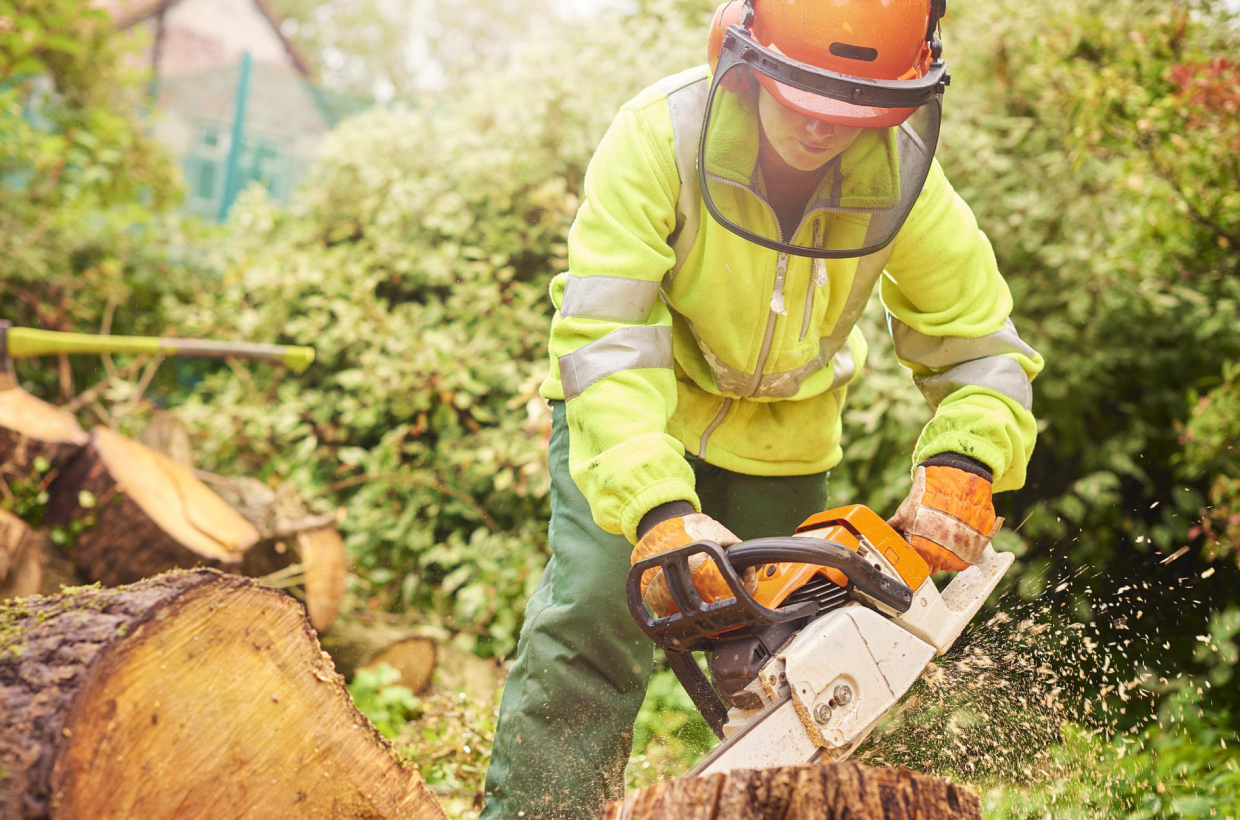
Green Roof Installers are responsible for the installation and maintenance of vegetated roof surfaces. They ensure that green roofs have the right components such as adequate sunlight, good drainage, and aeration for the plant material.
Green roofing has evolved due to the increasing need for green spaces within our cities, and because of their wide range of environmental and economic benefits. A green roof (also known as a living roof or eco-roof) is a roof or deck where vegetation or habitat for wildlife is deliberately established. The type of roof can range from a garden shed, garage or home extension to larger scale spaces such as schools, hospitals, or shopping centres. Green roofs are now a common requirement of many local planning departments on newbuild developments, and can bring a range of benefits, from reducing energy bills with natural insulation, and reducing the impact of rainstorms by absorbing water.
You’ll need:
knowledge and understanding of horticulture, with practical cultivation skills.
excellent planning skills and a good eye for detail
good problem-solving skills
good communication and interpersonal skills
a flexible approach to working in a busy and varied environment.
knowledge of health and safety regulations and procedures, including working at height
physical skills such as mobility and co-ordination
A full driving licence can be useful if working between and visiting clients. Different Personal Protection Equipment (PPE) such as safety boots and hard hats, will be recommended for each work situation.
You'll need to take courses and gain certificates of competence to operate equipment and machinery, and you can work towards a Land-based Industry Skills Scheme (LISS)/ Construction Skills Certification Scheme (CSCS) card in green roofing.
40 hours per week, varying over the year. Green Roof Installers need to be flexible and willing to work extra hours when required. Overtime, part-time, casual, or seasonal work are available.
Work from plans drawn up by a Landscape Architect or Garden Designer if a larger project.
Discuss plans and budgets with clients.
Prepare the roof for installation, laying protective waterproof and drainage layers, and spreading the correct growth medium.
Adding vegetation – anything from sedum and wildflowers, seeds, lawn, shrubs, and trees, depending on the project size
Working with specialist crane teams to lift the heavy materials to roof level.
More intensive green roof systems may require the installation of paths, paved areas, or rock gardens.
Advise clients about on-going upkeep of the green roof or returning at regular intervals to carry out ongoing maintenance.
You’ll spend most of your time working outdoors in all kinds of weather and working at height on rooftops. The work involves a fair amount of movement, lifting and bending. You may need to travel around between several sites.
Training is an essential part of any job, giving you the skills and knowledge you need to do your job safely and correctly. It also helps to strengthen your current skill set and prepares you for the next stage in your career.
Apprenticeships help you build the experience and skills that employers want to see. No matter what stage you’re at, they’ll help set you up for a bright future. There are lots of ways to get involved.
In organisations employing a team of staff, you could become a team supervisor or manager. You could also become self-employed starting your own business, or work oversees with the increasing popularity of green roofs in Europe and the US.
Green Roof Installer will usually work in one of the following industries. Click below to find out more about possible career paths.
The world of horticulture and landscaping is fast-moving, ever-changing and leading the way in combatting climate change.
Growing and harvesting plants for financial, environmental or social benefits not only helps the environment, it can also boost wellbeing – and from lawn mowing to landscaping, greenkeeping to scientific research, horticulture offers a huge range of rewarding careers.
Humans have been been growing plants and maintaining the natural environment since ancient times and horticulture has never stopped changing and adapting. As we learn more about the impact of climate change and weather extremes, horticulturalists are dealing with some of the biggest issues of the day: what will we plant in the future if resources like water and nutrients become limited? How do we make the most of the rapid advances in growing techniques, machinery, and cultivation?
Horticulture and landscaping plays an important part in our economy. It’s a dynamic industry, with continuous research and development and a focus on using technology to make growing more sustainable. That has created a range of exciting job opportunities for people who are passionate about plants, science and growing solutions.
The UK horticulture industry is worth over £9 billion each year
The industry supports the employment of almost 340,000 people, with landscapers and retailers accounting for 83% of the total
Private gardening is an important activity for UK citizens, with households spending £7.5bn on gardening goods, including cut-flowers, a year
The Republic of Ireland's horticulture industry is valued at €477m; it is the fourth largest industry after dairy, beef and pigs in terms of gross agricultural commodity output value
The industry employs approximately 17,000 people in the Republic of Ireland - an estimated 6,600 people directly employed full-time and another 11,000 indirectly employed in value-added and downstream businesses
These courses are perfect if you are starting out on your career but they are also great for people already in jobs who want to improve their skills.
To find out more about qualification levels in England please visit Regulated Qualifications Framework (RQF) for England and Northern Ireland or Framework for Higher Education Qualifications for England, Wales and Northern Ireland (FHEQ) .
To find out more about qualification levels in Northern Ireland please visit Regulated Qualifications Framework (RQF) for England and Northern Ireland or Framework for Higher Education Qualifications for England, Wales and Northern Ireland (FHEQ).
To find out more about qualification levels in the Republic of Ireland, please visit National Framework of Qualifications for Ireland (NFQIE)
To find out more about qualification levels in Scotland please visit Scottish Credit and Qualifications Framework (SCQF).
To find out more about qualification levels in Wales please visit Credit and Qualifications Framework for Wales (CQFW) or Framework for Higher Education Qualifications for England, Wales and Northern Ireland (FHEQ).
| Title | Level |
|---|
These courses are perfect if you are starting out on your career but they are also great for people already in jobs who want to improve their skills.
Whether you’re just starting out in the workplace, want to upskill or are considering changing direction, Apprenticeships are a fantastic way to build your career. Apprenticeships combine work with on-the-job training, so if you want to earn as you learn, there’s an apprenticeship out there for you – you can even start an apprenticeship if you already have a degree.
Work, earn and learn – no matter where you are in your career, an apprenticeship can set you up for a bright future.
Let’s get started!
Want to take on an apprentice? Employers start here.
An apprenticeship is a unique blend of work experience and study to help build the skills and knowledge you need for your career. Apprentices are employees – they have a contract, are paid and get the same benefits as everyone else. But the difference between an apprenticeship and a normal job is that apprentices are regularly released from work for training. Sometimes that’s a day a week, sometimes it’s for a longer block – it all depends on the job and the apprenticeship.
Apprentices work for all kinds of people at all kinds of stages in their lives. Most apprentices fall into one of three categories:
Previously restricted to school leavers and young people, apprenticeships are now a dynamic way of retraining people of all ages - there’s no upper age limit. The minimum age to become an apprentice is 16 and candidates can’t be in full-time education.
Apprenticeships offer a unique combination of paid work and study. They’re an exciting option for anyone who wants to gain experience, upskill or change career while working.
They offer a chance to work, learn and earn:


Interested in becoming an apprentice? Search for current opportunities and apply here.
Find your apprenticeship
You can also check vacancies on employer websites or get in touch with your local careers service.
What’s it like to work, earn and learn? Find out what apprentice life is really like.
Explore apprenticeship stories
Green Roofers
Find out more
Living Roofs and Walls
Find out more
The Green Roof Organisation
Find out more
Prolandscaper
Find out more
Horticulture Wales
Find out more
Royal Caledonian Horticultural Society (The Caley)
Find out more
Royal Horticultural Society (RHS)
Find out more
Chartered Institute of Horticulture (CIH)
Find out more
Horticulture Forum NI
Find out more
Horticultural Trades Association (HTA)
Find out more
Thinking about your finances is important when you're looking at courses and training - different types of funding support is available depending on what type of course you're interested in and where you are located. We recommend you contact the training provider for more information on course costs and financing, but here are some links to connect you to support available:
Skills Hub Scotland is an online skill sharing marketplace creating new opportunities to learn and share skills. Wherever you are located - if you have a skill to share, or a skill to learn, Skills Hub Scotland can help.
Initially founded as a response to the Scottish Government’s CivTech 5 programme in 2020 and aiming to offer a platform for those in rural or remote locations, Skills Hub Scotland has been developed into an important sectoral resource. If you have a skill to share with others or are a training provider, list your workshop or course (all skills from all sectors are welcome). If you are a learner, use Skills Hub Scotland to search for and book a course!
STEM is an approach to learning and development that incorporates the areas of science, technology, engineering and mathematics. Learning in STEM connects to Education for Sustainable Development/Learning for Sustainability and the Sustainable Development Goals – this helps learners to understand that STEM plays a vital role in finding solutions to real world issues or challenges such as protecting biodiversity and tackling climate change. There are multiple pathways into a land-based STEM career including apprenticeships, further and higher education. This means that a career in STEM is open to everyone!
STEM Learning is the largest provider of STEM education and careers support in the UK. Their STEM Ambassadors programme sees volunteers representing a vast range of STEM-related jobs work with young people to bring STEM subjects alive through real life experiences. They help to open the doors to a world of opportunities and possibilities which come from pursuing STEM subjects and careers. To become a STEM Ambassador, you can register via the STEM Learning website: https://www.stem.org.uk/stem-ambassadors/join-stem-ambassador-programme
Lantra have worked in collaboration with STEM Ambassadors in Scotland to create two specific UK-wide Ambassadors schemes - Forestry and Aquaculture. Through these schemes, we want to make sure that those working in forestry and aquaculture have the support materials they need to take part in STEM activities. To find out more and register for the schemes, please follow the links below:
Smart Futures helps young people in Ireland discover the STEM subjects and careers that might be right for them. Co-ordinated and managed by Science Foundation Ireland, their programme allows young people to connect with people that are working in STEM, the organisations they’re working in and what their interests and skills are.
Why not take a look at the Industries Explorer as an introduction to the different areas you could work in.
If we can support you with any specific information, please click the button below to get in touch.